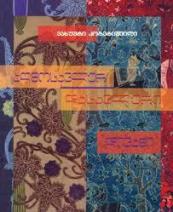EAST-WESTERN DIVAN
Almost all his life the brilliant translator Vakhushti Kotetishvili neglected, even disowned his own poems, neither seeking a home for them or even revealing their existence… as if he had given up possession of them and left them to find their own fate and as if he had no right to interfere with their fate. That is why the poems were scattered and lost contact with one another, as if they no longer sought a reader or an audience. Most of them were burnt down, together with the author’s house, in the fires of the 1992 war in Tbilisi. Towards the end of his life, Vakhushti Kotetishvili just about managed to cobble together two slim collections, The Hour of Sand and What I Should Have Said. It is hard to say why: perhaps, even at the end of his life, he felt somehow guilty towards his real readers and this was one of the reasons was why he tried, summoning up all his strength, to bequeath not just translations, but original texts… The sum total result are 55 sonnets which were collected into a book after his death. the sonnets were written over a very short space of time: from September 2007 to June 2008, and this is obvious from the inner wholeness of the cycle. As Zaza Abzianidze tentatively explains in his foreword, ‘These are thoughts on the banks of the Lethe’, but, nevertheless, they are ‘standing by the banks of the Lethe’, in fact the Leitmotif of the entire collection; but in no way does this stop Vakhushti Kotetishvili from being passionate, from listening with humour to various things, preventing him from turning the wisdom he accumulated over his life into a tasteless fossilized extract.
‘Vakhushti Kotetishvili’s sonnets are very important because they are not only integrated, but constitute an extremely contemporary, living and breathing text which is saturated with today’s life and represents it at the same time. Above all, it has an effect on today’s life and will affect the future development, too, of Georgian poetry. We can find these qualities, generally, in anything Kotetishvili has written, whether a translation or any other text.‘
‘In this case, the collected poems cannot be explained by the familiar poetics category of ‘Garland of Sonnets’. Here we have neither 15 sonnets, nor the conventional formal attribute of a ‘garland of sonnets’. Yet, one still perceives these 55 sonnets, written by Vakhushti Kotetishvili at the end of his life as a ‘garland’, for that is how this book of sonnets rounds off and in fact crowns their author’s biography. The crowning is graphically perceptible as an image, as a confirmation of, and, alas, as a parting from, its dominant and acknowledged position. In its graphic duality, it is palette of colours, its flowering and its withering away, this ‘garland’, this farewell book of sonnets, this poetic diary, composed at the end of a life, has portrayed with rare tenderness and sincerity the last, so dramatic period of Vakhushti Kotetishvili’s life‘
In case of using the information, please, indicate the source.
